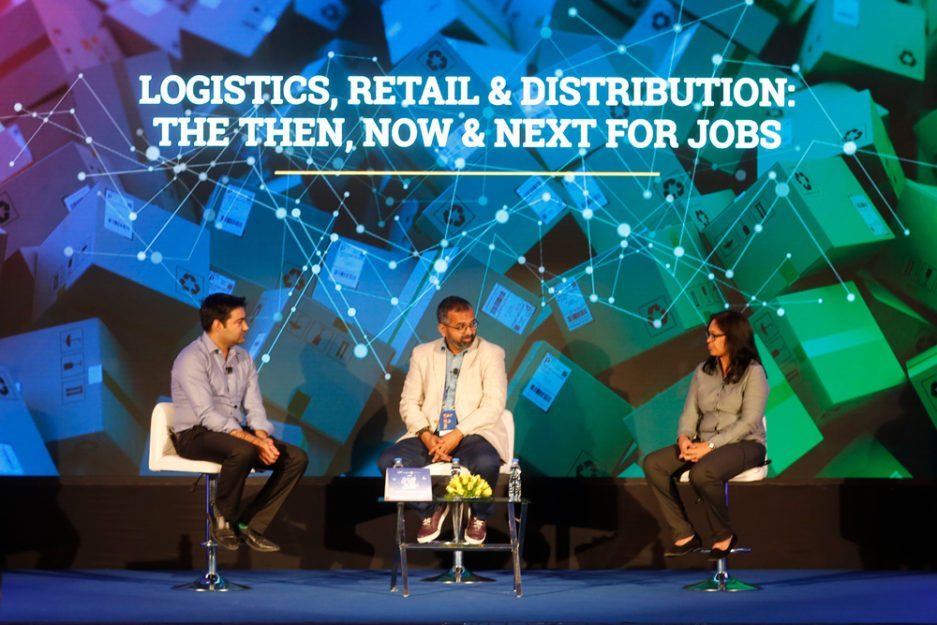Robots are rapidly growing in numbers, expanding their skills and quickly moving into our workplaces. Experts have started warning people of a jobless future. Will the rise of automation kill jobs, and what does it mean for one of the top employment sectors in India — retail and logistics?
Mohit Tandon, co-founder of logistics company Delhivery, believes that automation and data-driven efficiencies will increase retail consumption. This, in turn, will ensure that jobs lost in agriculture and manufacturing are created in the services space.
“Online and organised retail is making the supply chain more efficient. This is making things cheaper and growing consumption. Even though e-commerce has grown 15-100% year on year, this has not led to a slowdown in retail”
— Mohit Tandon, co-founder, Delhivery
Speaking during a discussion entitled ‘Logistics, Retail and Distribution: The then, now and next for jobs’ at the Future of Jobs in India summit by FactorDaily and CareerNet, Tandon said, “Any automation that happens in agriculture and manufacturing is always a boon to the service sector. This is going to have a positive impact on the number of jobs generated in retail.”
Rashmi Daga, founder of Bengaluru-based food tech startup Freshmenu, was also part of the discussion, which was hosted by Josey Puliyenthuruthel, consulting editor, FactorDaily.
On the subject of how technology is changing the retail and logistics industry, Tandon explained that Delhivery takes data science seriously in order to route items in a cheap and efficient manner. “What is happening with online and organised retail is that the supply chain is becoming more and more efficient. This is making things cheaper and in turn growing consumption. Even though e-commerce has seen 15-100% growth year on year, this has not led to a slowdown in the retail market,” he said.
On the other hand, predicting consumer need and providing the right choice to consumers can increase consumption demand manyfold, said Daga.

Freshmenu owns the end-to-end value chain of food from manufacturing to delivery, in order to provide the best experience for the consumer. “Food habits are very strong and learning to predict what the customer likes to eat and offer helps improve repeat order rates from customers. Add efficient delivery to that and predicting becomes a powerful driver of consumption, more than even choice, in sectors like food,” said Daga.
Both agreed that while the rise of data and automation can help create jobs, what’s more important is to ensure that the quality of jobs improves as well. These e-commerce platforms create a pyramid of jobs, with quality increasing as we go forward. According to Daga, “We undertake on-the-job training and help our staff working at the lowest level go up the ladder. In the last couple of years, many of our employees have picked up new skills and ramped up their career track.”
The quality of jobs at the bottom of the pyramid also rises due to increasing efficiencies. “The delivery guy who was earning Rs 15,000 earlier is now earning to earn Rs 20,000-25,000 a month. He is also spending more and creating more demand in the economy, thereby leading to job creation indirectly. We need to focus on equipping people with the right skills (using technology if applicable) so that they can contribute in more efficient ways to the economy,” said Tandon.
Subscribe to FactorDaily
Our daily brief keeps thousands of readers ahead of the curve. More signals, less noise.
To get more stories like this on email, click here and subscribe to our daily brief.
Lead visual: Nikhil Raj Careernet is the sponsor of our Future of Jobs in India coverage and events. The coverage and the content of the event are editorially independent. For more on how we separate our newsroom and our business functions, read our code of conduct here.








